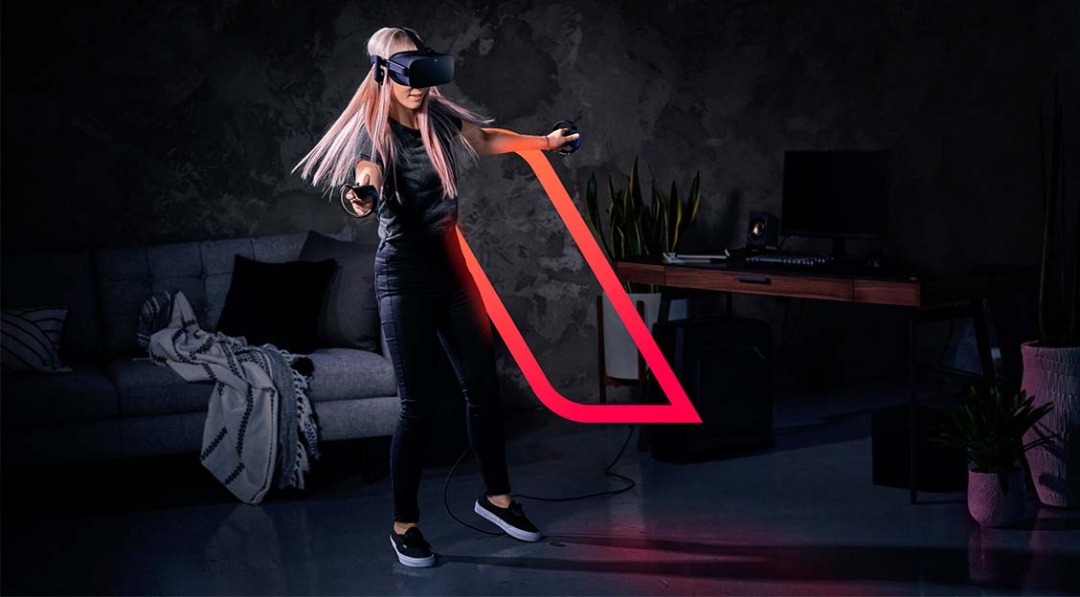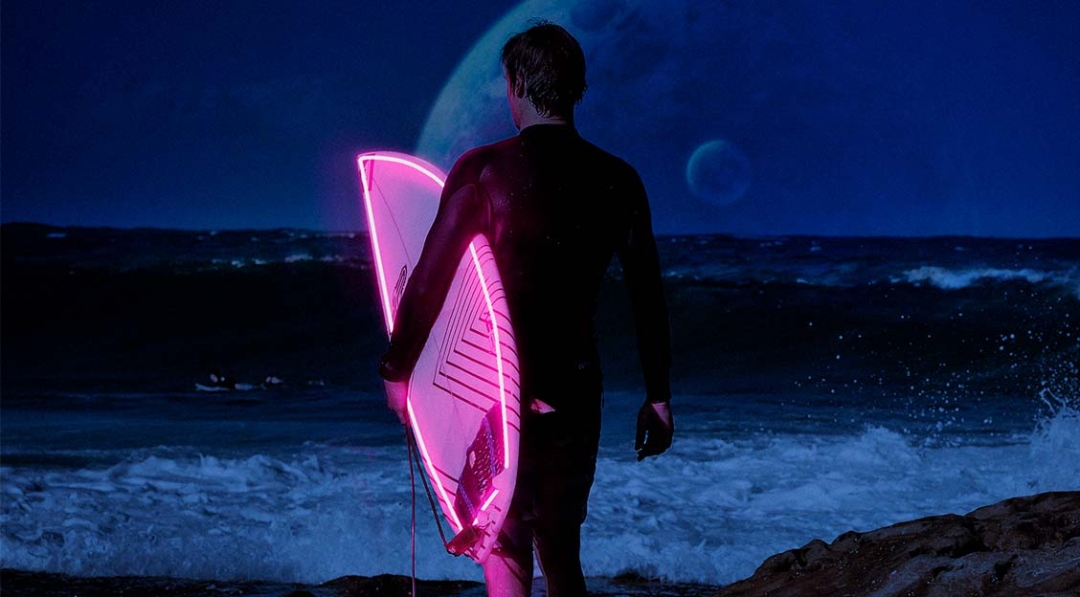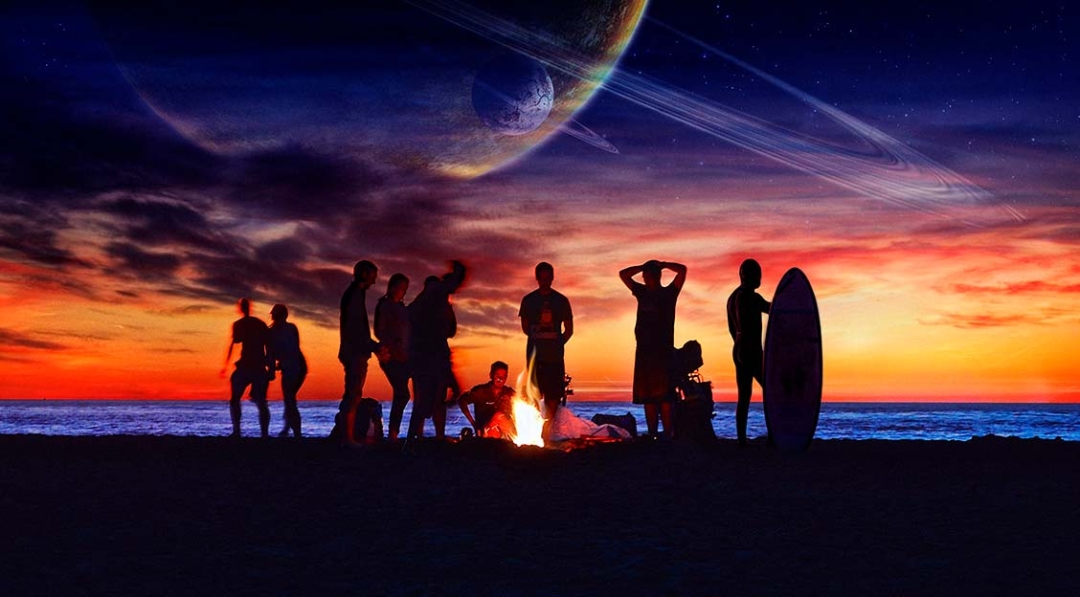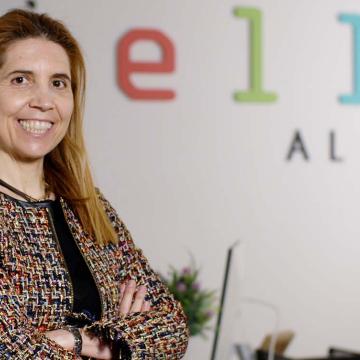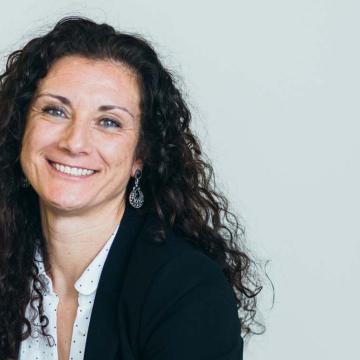Talent for comics and graphic novels is endless in Spain. Paco Roca, Ana Penyas, Paco Sordo, María Medem, Juanjo Guarnido, Teresa Valero… Do you want to get to know some of the best illustrators in the country?

If the Internet shook up our world, how overarching could the impact of the metaverse be? Edgar Martín-Blas, one of the leading experts on the metaverse in Spain, answers this question and invites us to join the expedition. First step: buy a virtual reality headset. Second step: explore the infinite possibilities it offers. Third —and most important— step: let yourself be swept away by the imagination of world creators.
Despite being an authority on the subject and working on projects in the metaverse for none other than META itself —previously Facebook—, like the virtual concerts by Steve Aoki or Major Lazer, Edgar Martín-Blas (Madrid, 1978) still considers himself more of an explorer than an expert. His relationship with the metaverse began in 2013, when he invested 300 dollars in a virtual headset prototype, Oculus, which Facebook purchased a few months later for a whopping 2,000 million US dollars and kicked off the race for the metaverse. Without a second thought, Edgar left his job at Tuenti to jump on the wave without a plan, just going with the flow. Since then, this virtual wave hasn’t stopped growing and he, now at the head of Virtual Voyagers, rides it like no other.
What is the metaverse really?
It’s a new three-dimensional Internet, which you can enter through virtual reality or augmented reality headsets and that, above all, allows you to perform physical activities in it. It’s extremely different to the old Internet, which is more passive and in 2D. Inside the metaverse we’ll see worlds at human scale in which we can explore, perform activities, and interact with objects or people.
“The brands that are present since the beginning of the metaverse will have experience to make increasingly better decisions”
How can we access it?
Currently, depending on the level of immersion, there are three ways and the experience they offer improves from one to the next. Firstly, there’s access through a PC, tablet, or mobile phone, somewhat similar to online video games, and what we call protometaverses. Some examples are Fortnite or Roblox, which are hardly immersive. Then there’s virtual reality, which is the most immersive format and requires a headset. Soon we’ll see the arrival of the mixed reality metaverse, promoted by Apple. Its transparent headset will turn everything upside down, because the metaverse won’t be 100% virtual, but will coexist with the real world, like in the film Who Framed Roger Rabbit.
What opportunities can both people and companies find there?
It’s a reset, something practically unprecedented. Its main drive is emerging business opportunities, new job positions related to talent development, and projects that have never been seen before. This is why there’s currently so much worldwide excitement: we’re starting from scratch; we have to build and reimagine everything.
What impact is the appearance of this new world having and which will be the role of talent?
It’s a tsunami. Practically all sectors are pouring their talent into it, because it affects them. META was the first, announcing its change in strategy, followed by Microsoft, Google, Nvidia, Disney, Inditex or Nike, an endless list of companies that are betting on this new world. It’s a race to see who’ll conquer it first, and talent will be key. What they’re not aware of is that the metaverse is so infinite that there’ll be room for everyone, although the brands that are present since the beginning will have experience to make increasingly better decisions.
In this race to be present in the metaverse, how are companies pouring their talent into it?
Most are choosing to build ad hoc metaverses for each brand that’ll launch between 2022 and 2023. Some focus more on leisure and the connection between users, like META, while others concentrate more on work, like Microsoft. We also find social metaverses more aimed at mini games, like RecRoom o Vrchat, and soon Disney will launch its metaverses of known IPs, like Star Wars or Marvel. The focus of each metaverse will be key and that’s what each brand needs to research: what they can build in that space and which activities they can offer to users.
“I doubt the metaverse will turn into a replica of the real world, because we already have our own beautiful world for that”
You’ve developed projects in the metaverse with international companies. Where would you say Spanish talent lies when it comes to the development of this universe?
Spain is, above all, a leader in content, since we are highly capable of generating projects with scarce resources. In a world that received little investment at the beginning, we’ve positioned ourselves thanks to this aspect. Practically all large businesses that are building in the metaverse include Spanish employees or collaborate with Spanish companies. In fact, we helped META, together with Californian Supersphere, to create the concert area in its metaverse. It was a four-month project where Steve Aoki and Major Lazer performed virtually.
What advantages does this virtual world offer over the real world?
The main benefit is that it allows us to have different experiences to those in the real world, situations that we’d never be able to experience due to physical or spatial limitations, like walking on Mars or travelling to five countries in less than 30 minutes. In the metaverse, everything is possible. I doubt it’ll turn into a replica of the real world, because we already have our own beautiful world for that. The metaverse connects with that inner child that lives inside each of us, that’s keen to explore and is curious about nature, and opens up a world of infinite possibilities.
“The metaverse connects with that inner child that lives inside each of us, that’s keen to explore and is curious about nature”
And what are the risks?
I’d say that, since it’s inhabited by people, human beings themselves are, as always, the risk. This is nothing new, since on the Internet and on social media, the problem isn’t the technology, rather how some people use it. To avoid this, management, monitoring, and moderating tools are being created simultaneously to avoid problems or to report them quickly if they arise.
What would you recommend to those thinking about stepping into it?
The first thing I’d recommend is to buy a headset, like the META Quest, which is the cheapest and simplest, and to start exploring the metaverses that already exist, like AltSpace, META, o Vrchat. They’re still emerging and there’s plenty of room for improvement, but everything will come to a head in the following months and years.
